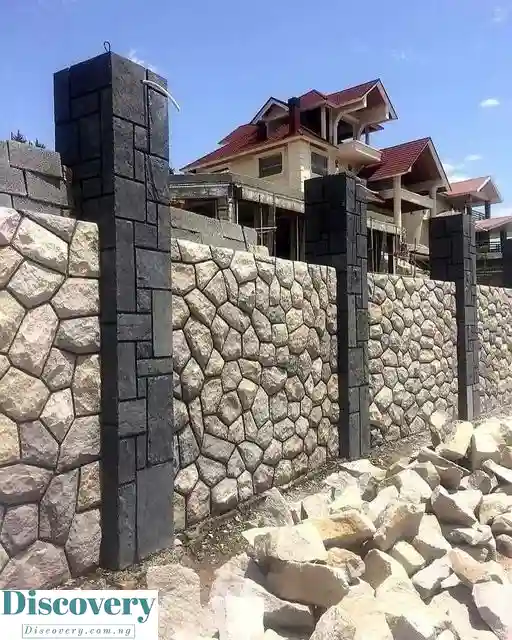Fences are an essential aspect of architectural design in Nigeria. Fences serve a variety of purposes such as providing security and privacy, enhancing the aesthetic appeal of a building or property, demarcating boundaries, and protecting individuals from external disturbances. In urban areas, fences are necessary to safeguard homes and commercial buildings from burglars, car thieves, and vandals.
On the other hand, in rural areas, fences protect crops from animals like cows and goats that may wander into farms without permission. Fencing is also an intrinsic component of Nigerian culture as it symbolizes wealth and status in society.
In many Nigerian communities, a house without a fence is perceived as incomplete by locals as well as outsiders. Additionally, most government institutions like schools, hospitals, banks also have fencing around their premises to ensure the safety of students and patients.
Contents
Modern Fence Designs In Nigeria
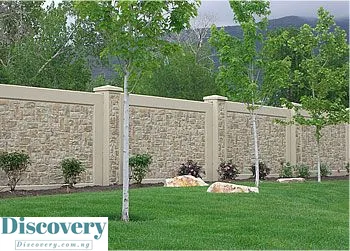
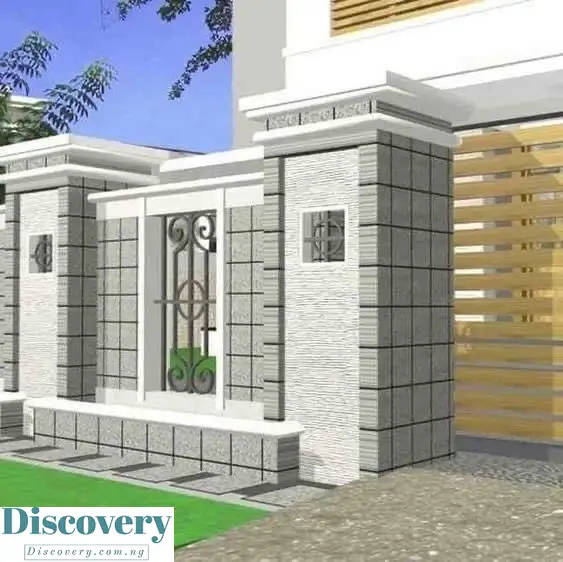
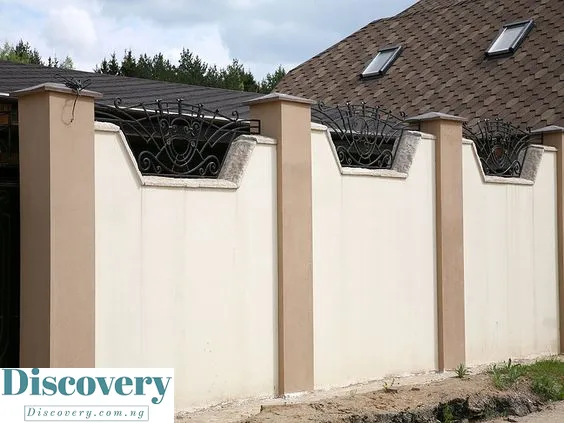
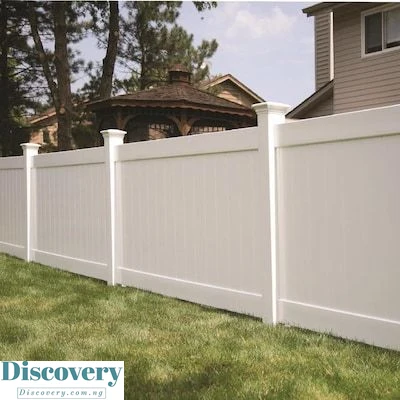
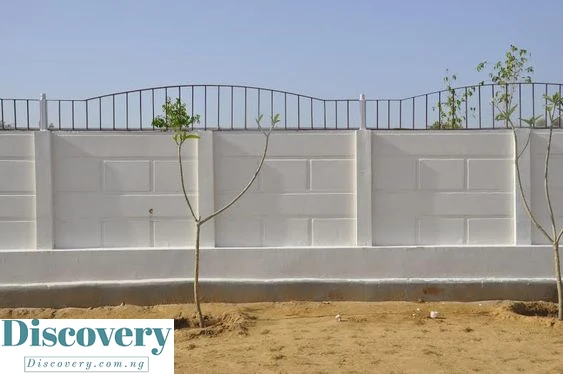
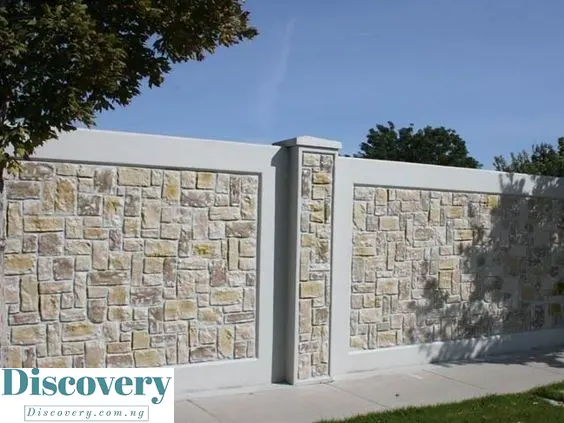
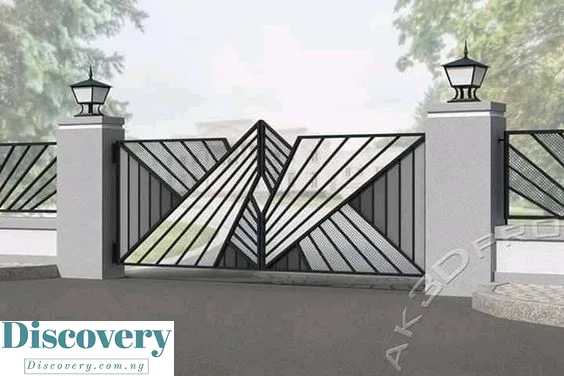
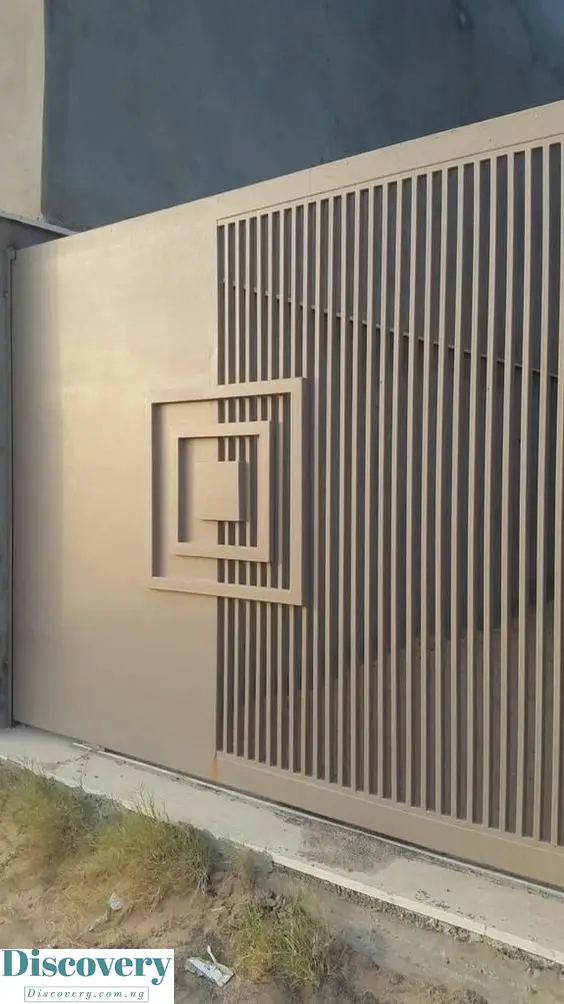
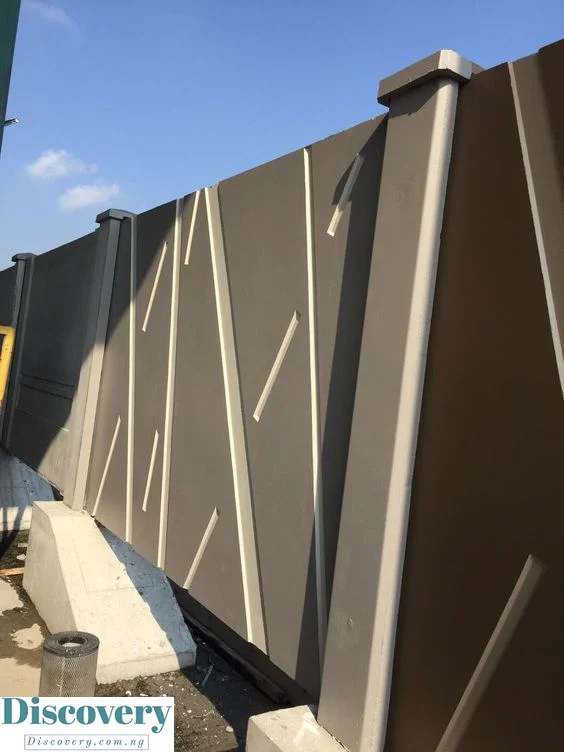
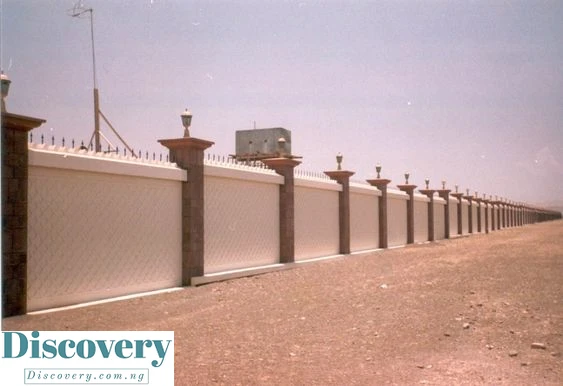
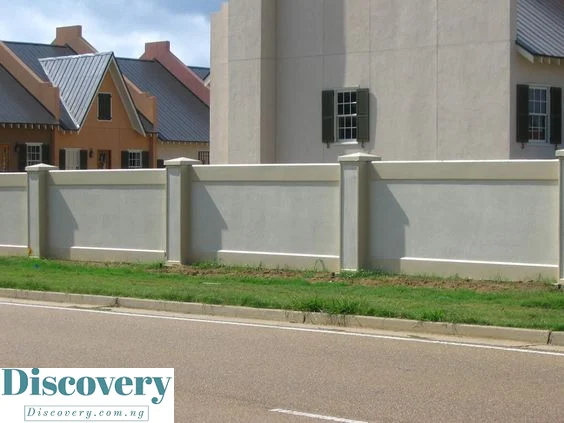
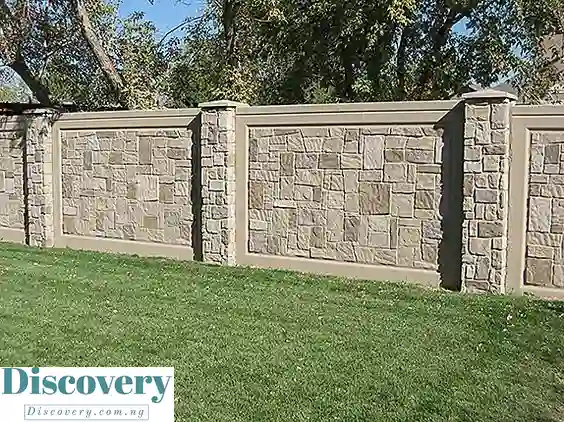
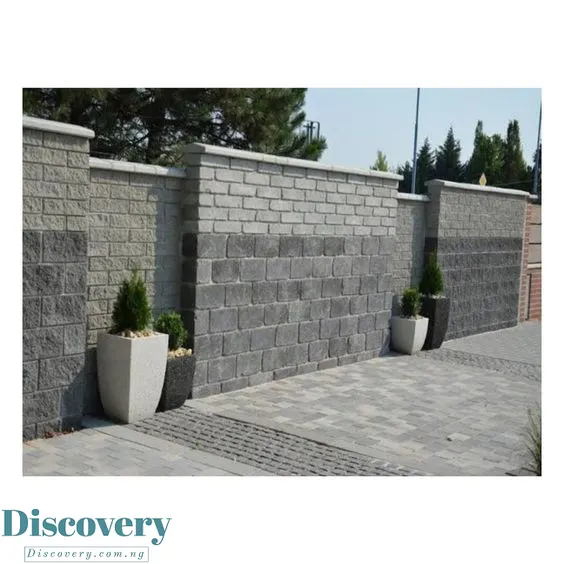
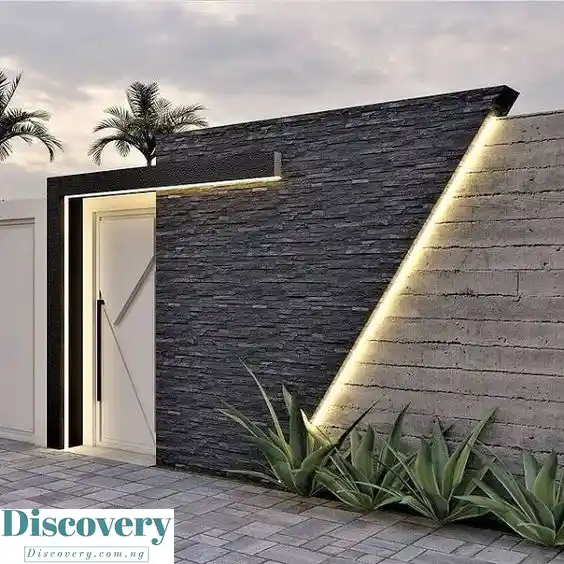
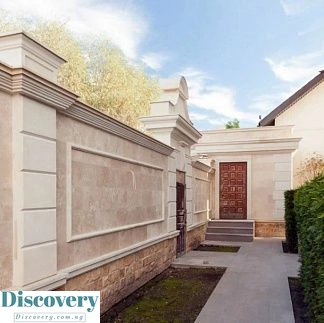
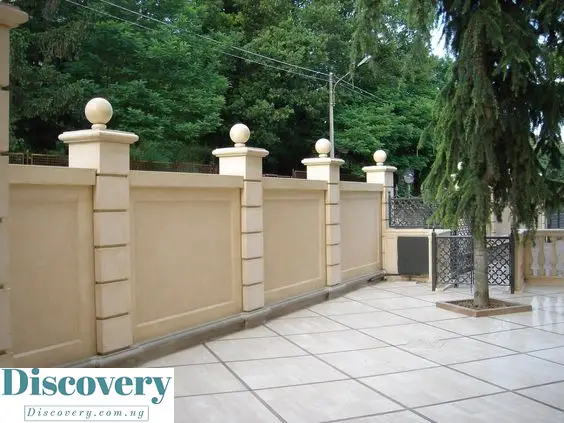
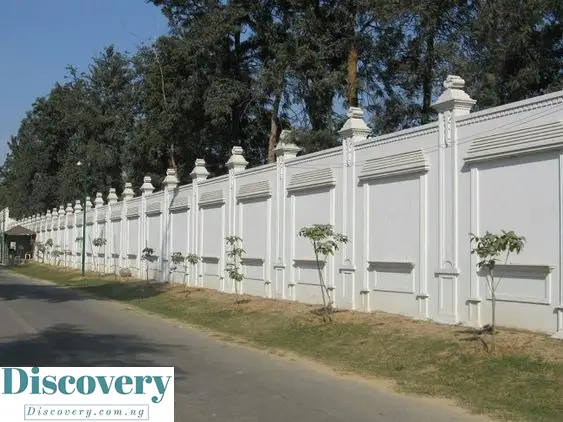
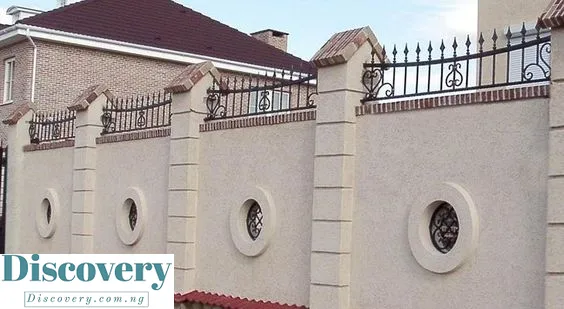
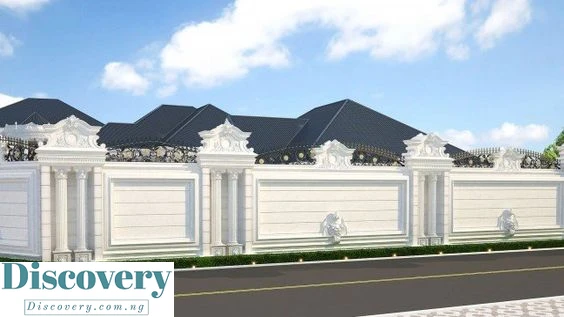
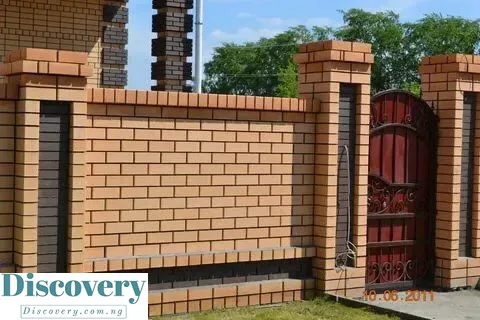
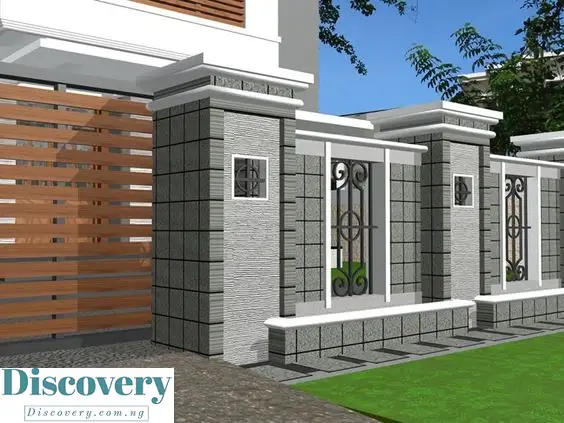
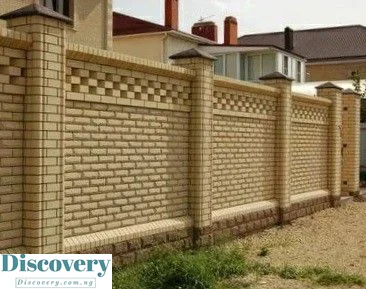
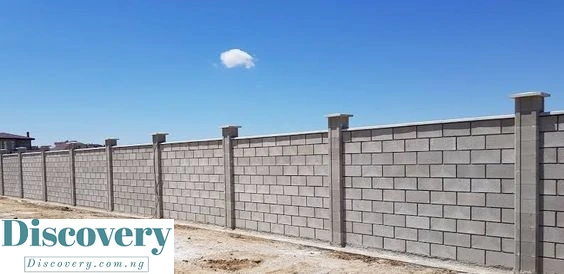
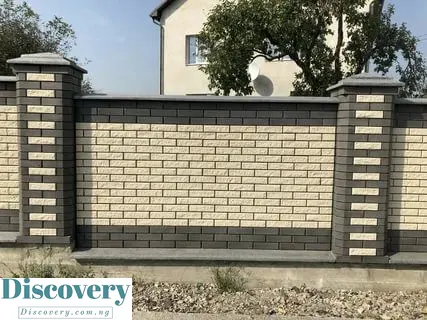
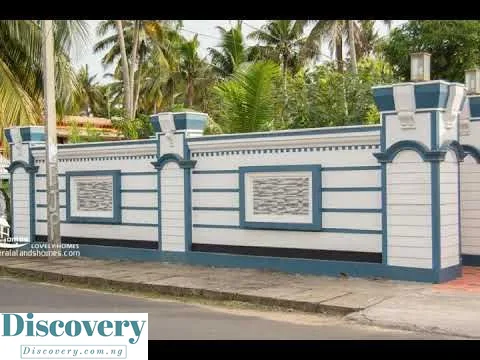
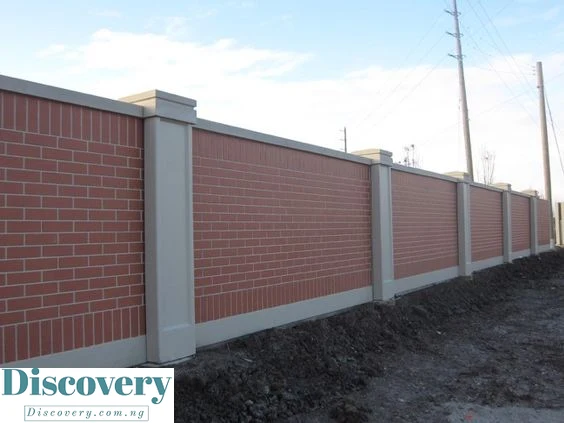
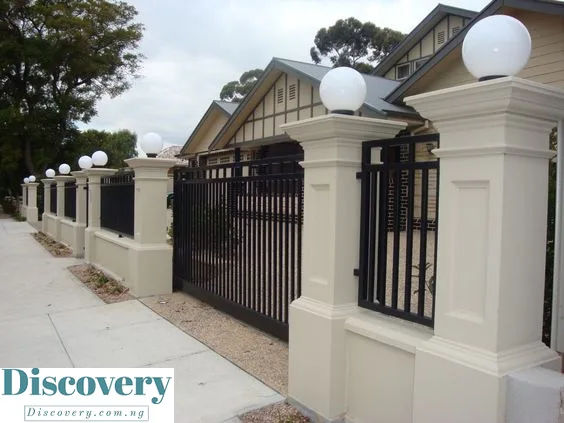
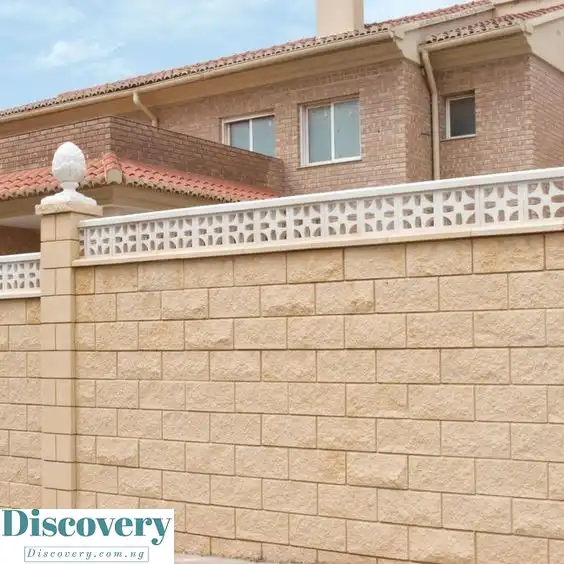
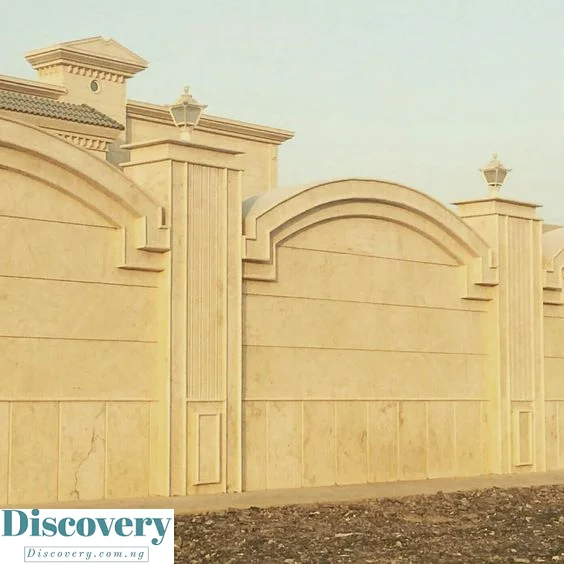
Popular Fence Designs in Nigeria
Fences are a crucial part of any property in Nigeria, serving as a barrier between the owner and the outside world. There are several fence designs used in Nigeria that differ in terms of material, style, and cost. The most popular fence designs used in Nigeria include brick and mortar fences, chain link fences, and wooden fences.
Brick and Mortar Fences
Brick and mortar fences have long been a popular choice for homeowners across Nigeria due to their durability, strength, and timeless appearance. These types of fences consist of bricks stacked on top of each other with mortar holding them together. Brick fences offer an unparalleled level of privacy as they can be built to great heights.
One advantage of brick and mortar fences is their lifespan; they can last for decades without requiring any renovation or maintenance work. However, this type of fence is expensive compared to other options like chain link or wooden fencing.
Additionally, once constructed, it is difficult to modify its design. Regarding maintenance requirements for brick fences; they require very little maintenance except if there are cracks or breaks that occur due to factors such as extreme weather conditions that may lead to water penetration which could weaken the structure over time if not addressed.
Chain Link Fences
Chain link fencing is another popular option amongst Nigerian homeowners due to its affordability compared with other types of fencing like brick walls while still offering a decent level of security. It consists primarily of interlocking steel wires woven together into a diamond pattern.
A significant advantage offered by chain link fencing is its transparency which allows people inside the property almost complete visibility outside without compromising on security measures such as access controls at entry points like gates or doors installed on them. The primary downside associated with chain link fencing is its lack of privacy since it does not block out noise or visually shield your property from passers-by.
It is also not the most visually appealing choice of fence because of its industrial look. Regarding maintenance, chain-link fences are relatively low-maintenance as they require only occasional cleaning and rust removal if left exposed to harsh elements over time.
Wooden Fences
Wooden fences have become increasingly popular in Nigeria for their natural beauty and rustic charm. These fences come in different styles, sizes, and colors. They can be made from a variety of wood types like Cedarwood, Pine, or Mahogany.
One significant advantage offered by wooden fencing is their versatility which allows for customization options that include painting or staining them with different shades to give your property a more distinct look. They also offer privacy due to the solidity of the wood.
However, wooden fences require regular maintenance such as sanding and sealing every few years to protect them from rotting, warping or cracking caused by exposure to changing weather conditions especially heavy rainfall which causes wood to expand rapidly then shrink after drying leading to cracks when untreated. Homeowners can choose between these three popular fence designs based on their security needs, aesthetic preferences, and budget constraints while considering long-term maintenance requirements involved with each type of fencing material used in Nigeria.
Bamboo Fences
Bamboo fences are becoming increasingly popular in Nigeria, especially in rural areas. Bamboo is a sustainable and eco-friendly material that is readily available in Nigeria.
Apart from being environmentally friendly, bamboo fences have several advantages that make them a great choice for homeowners. One of the most significant benefits of bamboo fences is their aesthetic appeal.
They add a natural and rustic charm to any property and can blend seamlessly with the surrounding environment. In terms of cost, bamboo fencing is relatively inexpensive compared to other fence types, making it an ideal option for those on a budget.
Maintenance requirements are also minimal as they do not need regular painting or staining like wooden fences do. However, one downside of bamboo fences is their durability; they are not as strong as other materials such as brick and mortar or chain link fences.
Gabion Walls
Gabion walls are an innovative approach to fence designs that involve using wire cages filled with stones or other materials. These types of walls have several advantages over traditional fencing systems. Gabion walls are highly durable and resistant to harsh weather conditions such as heavy rainfall, strong winds, and extreme temperatures.
In addition to being strong and sturdy, gabion walls also offer excellent noise reduction properties due to their thickness and density. They can block out unwanted sounds from busy roads or noisy neighbors effectively.
The cost of building gabion walls is relatively high due to the use of specialized materials such as rocks or stones for filling the wire cages. Maintenance requirements for gabion walls vary depending on the type of fill material used but generally require little upkeep.
Living Fences (Hedges)
Living fences, commonly known as hedges, provide a natural barrier around properties while adding aesthetic value through their beauty and texture variation. Hedges come in different types such as evergreen hedges which remain green throughout the year while deciduous hedges lose their leaves in winter. One of the significant advantages of living fences is their ability to provide privacy while also enhancing the beauty of a property.
Hedges can also act as windbreaks, reducing wind speeds and protecting gardens from harsh weather conditions. The cost of hedges varies depending on the type planted but generally requires less initial investment than other fence systems.
Maintenance requirements for living fences are higher than other fence types as they require regular trimming and shaping to maintain their shape and prevent overgrowth. However, despite their high maintenance requirements, living fences remain a popular choice for homeowners looking to add a touch of natural beauty to their properties.
Factors to Consider When Choosing a Fence Design in Nigeria
Choosing a fence design in Nigeria can be overwhelming, especially considering the many options available. However, it is essential to consider several factors before making your final decision. The following are some of the primary factors that you should consider when choosing a fence design in Nigeria.
Security Needs
One of the most crucial factors to consider when selecting a fence design in Nigeria is security needs. The purpose of constructing a fence is primarily for security reasons, and it’s essential to choose an option that meets your specific needs.
For instance, if you live in an area with high crime rates or where wild animals pose threats to your safety, then you need a sturdy and durable fence design. Brick and mortar fences, chain link fences and gabion walls are popular options for enhancing security.
Privacy Concerns
Another factor to consider when selecting a fence design in Nigeria is privacy concerns. If privacy is essential for you or your family, then you need to choose an option that guarantees maximum privacy while still providing aesthetic appeal.
Wooden fences are perfect for privacy as they can be designed with minimal gaps between pickets. On the other hand, living fences (hedges) provide natural beauty and excellent privacy.
Aesthetic Preferences
Aesthetic preferences play a vital role when choosing a fence design in Nigeria as these structures contribute significantly to the overall look of your property or home exterior. There are numerous options available ranging from traditional brick and mortar designs to more modern materials like bamboo or recycled plastic fencing solutions.
Environmental Conditions
Environmental conditions must also be taken into consideration when selecting a fence design in Nigeria. Factors such as wind patterns, precipitation levels and soil type may dictate which fencing options work best within certain areas of the country.
For example, bamboo fencing may be a good option in humid or tropical regions because of its natural ability to withstand moisture and humidity. Alternatively, metal or chain link fences may be more appropriate in areas where wind is a significant factor.
Choosing the right fence design in Nigeria requires careful consideration of various essential factors such as security needs, privacy concerns, aesthetic preferences, and environmental conditions. By taking all these factors into account, you can choose the best option that will not only serve your immediate needs but also add value to your property.
Rarely Known Small Details About Fence Designs in Nigeria
Local Regulations on Fence Construction
While it may seem that building a fence is a straightforward endeavor, there are many intricate details to consider when constructing a fence in Nigeria. In Lagos, for example, property owners must obtain a permit from the Lagos State Physical Planning and Development Authority (LASPPDA) before they can construct a fence. This permit entails an assessment of the proposed design and dimensions of the fence to ensure that it complies with zoning regulations, which vary depending on whether the land is residential, commercial or industrial.
Additionally, it’s vital to note that fences constructed on designated road alignments or prohibited areas are illegal and can be removed at any time. The regulations pertaining to fence construction also require that fences constructed near highways and roads should be designed so as not to obstruct visibility or create hazards for passers-by.
As such, all fences within these areas should be of limited height and generally transparent enough so as not to obscure views through them. The regulations further stipulate permitted materials for fence construction, such as wood and concrete blocks in some locations while prohibiting others like corrugated iron sheets.
The Role of Gates in Fence Design
Gates are typically part of any perimeter fencing arrangement; they serve both functional security purposes while still contributing greatly to curb appeal when properly incorporated into the overall layout of the property. The design choices for gates are numerous- ranging from swinging metal gates with ornate designs to simple wooden slats. There are several types of gates available in Nigeria; sliding gates open horizontally on tracks while swing gates pivot about hinges attached to posts embedded into masonry walls or columns.
It’s important to note that gate design has implications for safety since some designs may pose tripping hazards if not adequately secured or maintained over time (e.g., hinges getting loose). Furthermore, gates should be designed in tandem with the fence’s overall design and function, taking into consideration the security needs of the property owner.
While gates are often assumed to be a minor component of fence design, they play a critical role in defining the overall appearance and function of perimeter fencing systems. Property owners should conduct thorough research, taking into account local regulations on fence construction and available designs before investing in a gate that will not only provide safety but improve curb appeal.
Conclusion
After exploring the various fence designs in Nigeria, it is clear that there are many factors to consider when choosing a fence for your property. The decision ultimately comes down to your specific needs and preferences, such as security requirements, privacy concerns, and aesthetic preferences. Each type of fence has its advantages and disadvantages in terms of cost, maintenance requirements, and durability.
Brick and mortar fences offer the highest level of security but require significant investment upfront and ongoing maintenance. Chain link fences have a lower cost but are less visually appealing and offer less privacy.
Wooden fences can be customized to fit any aesthetic but may require more maintenance than other options. If you’re looking for something unique, bamboo fences provide natural beauty while gabion walls offer a modern industrial look with excellent durability.
Living hedges can add character to any property while also providing environmental benefits. It is essential to consider local regulations on fence construction before selecting a design as well as the role gates will play in your design.
Whichever option you choose from this comprehensive list of popular and niche fence designs in Nigeria should be tailored to meet all your needs: protect your privacy or keep intruders at bay; add value by enhancing the beauty of your environment or provide additional parking spaces. Whatever you decide on will help make your home safer or more beautiful by creating an aesthetically pleasing boundary that is both functional and attractive at the same time.
